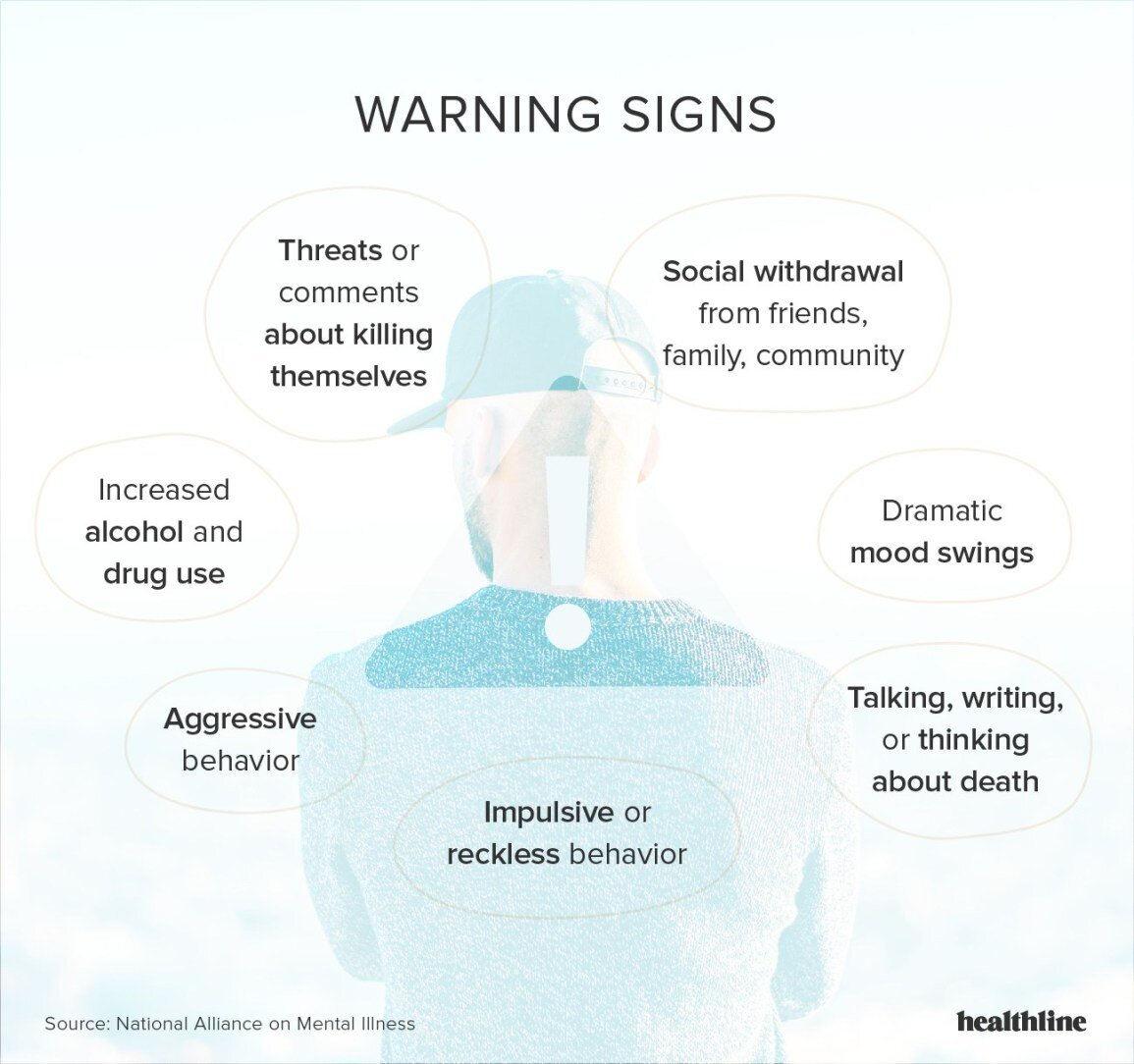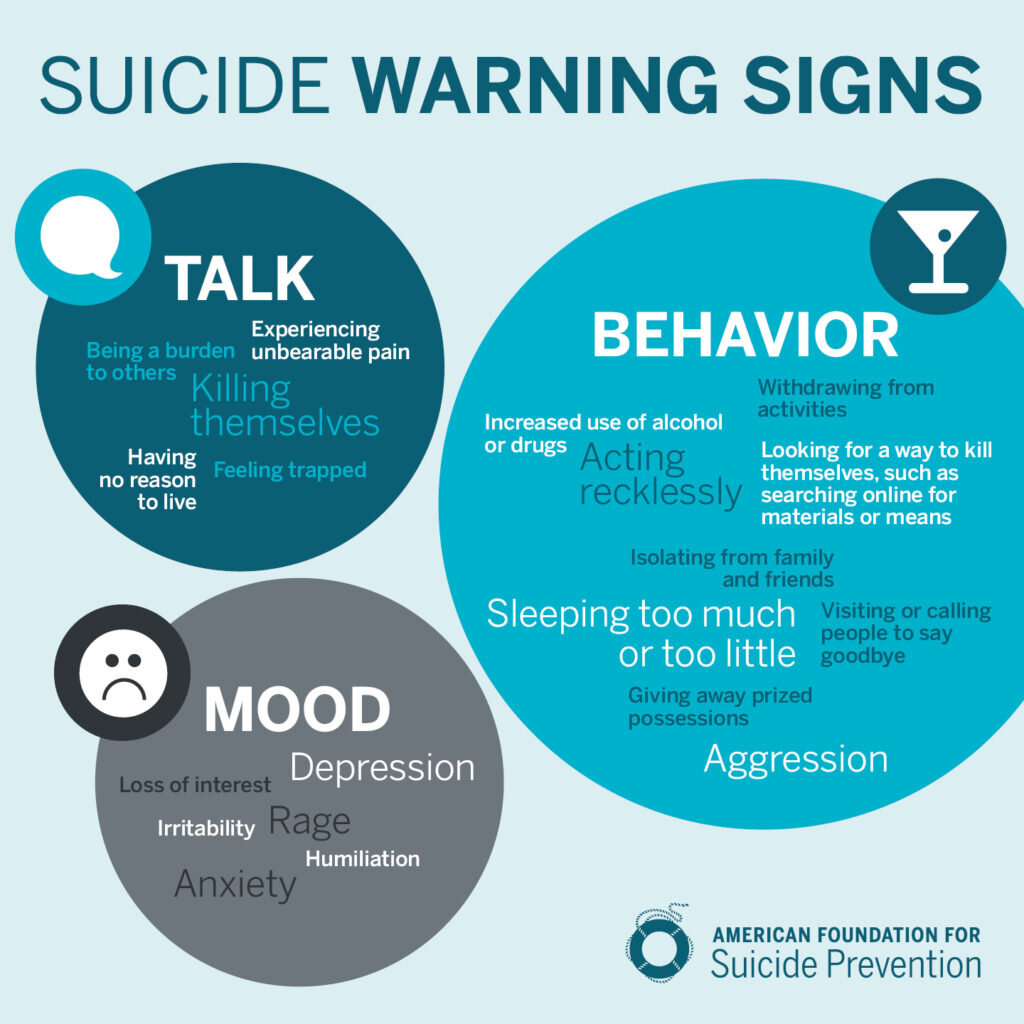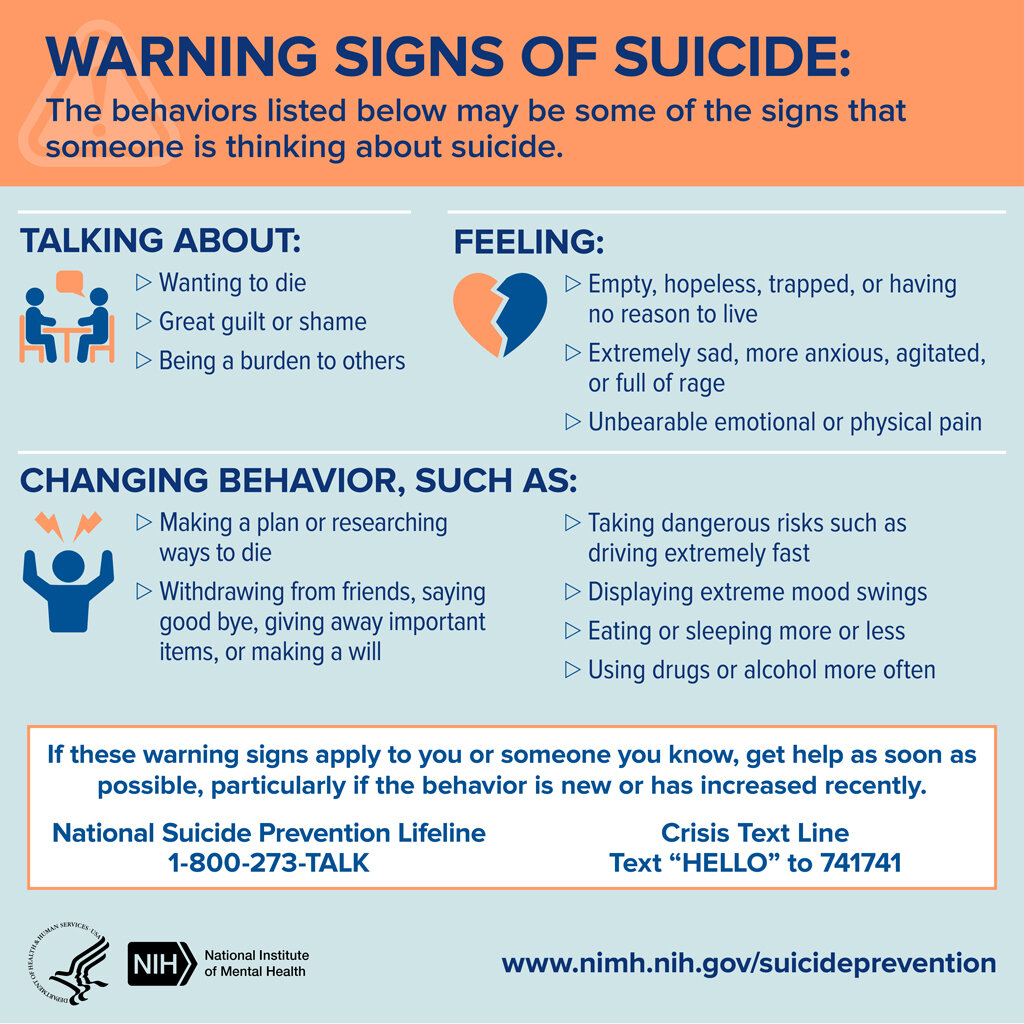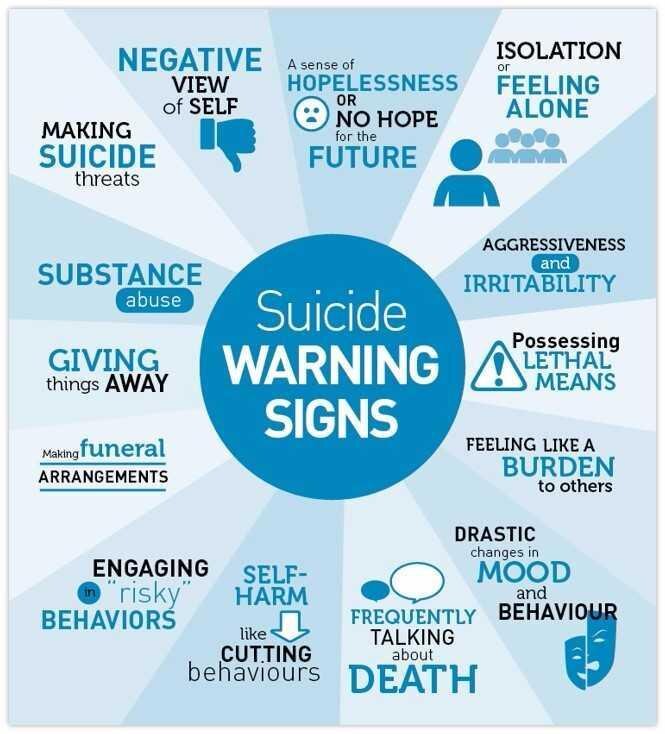Help someone in need
Recognize warning signs
if someone is talking about:
Not wanting to live
Planning or attempting death
Feeling extreme guilt/shame or having no purpose
Feeling hopeless or trapped
Being a burden to others
Feeling isolated
if someone is displaying:
Extreme mood swings
Anxiety, agitation, recklessness
Rage/ seeking revenge
Withdrawn mood
Sleeping too little/too much
Increased alcohol/substance use
How to talk to someone who may be struggling with their mental health
WHAt to avoid:
Debating the value of life (“You have so much to live for.”)
Minimizing their problems (“Things could be a lot worse.”)
Giving advice (“You’ll be okay, just give it some time.”)
What to do:
Talk to them privately
Listen to what they have to say
Tell them you care
Ask directly if they are thinking of suicide
Encourage them to seek treatment
For more information on how to help, or to become trained in suicide prevention, please visit theconnectprogram.org.*
resources for schools
If a student/faculty member takes their own life, please consider reviewing “After a suicide: a toolkit for schools” created by the american foundation for suicide prevention and the suicide prevention resource center*. this toolkit addresses crisis response, helping students cope, working with the community, wokring with the media, memorialization, social media, suicide contagion, bringing in outside help, and going forward.
Available trainings
Looking for official suicide prevention trainings? below are trainings available to people throughut the state and the country. some trainings are free of cost and others are not.
QPR Online Gatekeeper Training - https://qprinstitute.com/individual-training
Suicide Prevention Resource Center - https://www.sprc.org/training
Zero Suicide Training - https://zerosuicide.edc.org/resources/trainings-courses
NAMI NH Training - https://www.naminh.org/education/training-opportunities/




